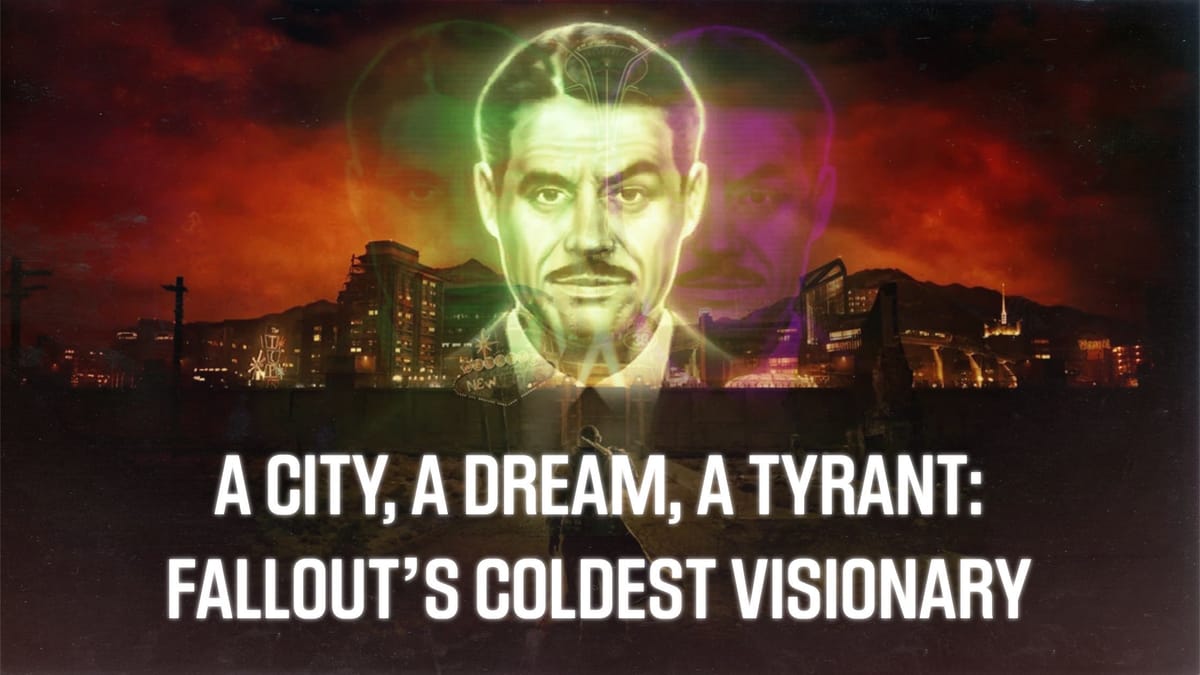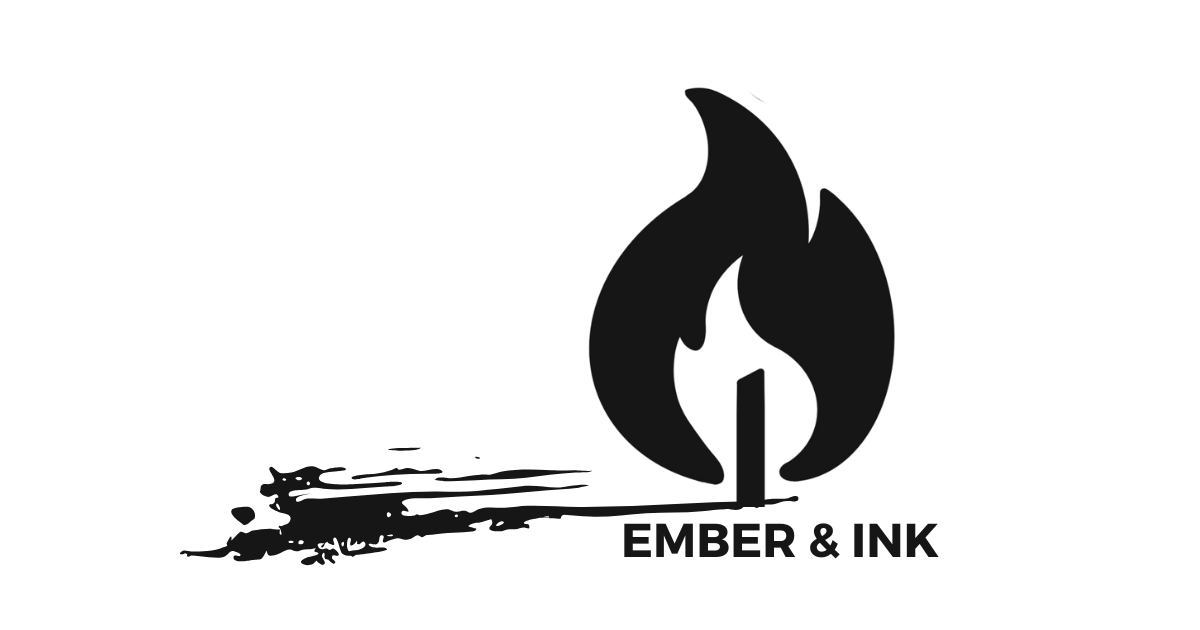A City, a Dream, a Tyrant: Fallout’s Coldest Visionary
Mr. House isn’t a hero. He’s not kind. But in a world built on ruins and failure, he offers something rare: a vision that works: sleek, brutal, and impossible to ignore.

In Fallout: New Vegas, players are dropped into a world already in ruins. The bombs fell over two centuries ago, but the real fight — for power, survival, and meaning — is still going. At the center of it all is the Mojave Wasteland, and at the center of the Mojave is New Vegas, a city that should not exist. Neon-lit, oddly pristine, and disturbingly functional, it is the domain of one man: Mr. Robert House. You meet him halfway through the game, locked inside a tower, kept alive by wires and machines, promising order in exchange for obedience.
He is easy to dislike. He is rich. He is arrogant. He treats people like pieces on a board. But he is also the only person in the game who is not pretending the world can go back to what it was. Where the NCR stalls in bureaucracy and the Legion collapses into brutality, House offers something else entirely. A plan. Not for peace. Not for equality. For survival. For continuity. For something to outlast the chaos.
This article is not about excusing him. It is about sitting with the kind of person who looks at the end of the world and decides to live through it. A man who chooses machines over people, control over connection, and legacy over life. Along the way, we will look at the men he mirrors in our world: Howard Hughes, Walt Disney, and Elon Musk. We will ask what it really means to bet on the future, even when there is no one left to share it with.
Before Mr. House was a ghost in a tower, he was a man. Born in 2020, orphaned young, and cheated out of his inheritance by a bitter half-brother, House did not fall apart. He built something bigger. RobCo Industries made him one of the richest and most powerful men on Earth by the time he was thirty. He could have lived anywhere. He chose Las Vegas.
His story reads like a post-apocalyptic retelling of Howard Hughes. The same brilliance. The same isolation. The same slow erosion into obsession. Hughes locked himself away in a penthouse above the Strip. House did the same, only with more machines. Both men tried to master their environments completely. Both ended up swallowed by them.
New Vegas is House’s Spruce Goose. It is too big, too shiny, and too ambitious for the world it lives in. But that is the point. House did not build it to be realistic. He built it to work. To prove that something could be made with purpose while everything else fell apart. And in the process, he gave up his body, his senses, maybe even his soul. What is left is a man who sacrificed everything human about himself for a dream that will never love him back.
Before the bombs fell, the world was already collapsing. Nations devoured each other over oil and water. The United States annexed Canada. The UN faded into irrelevance. Vault-Tec was preparing for the end, and so was Robert House. Some believe Vault-Tec was preparing for more than just survival. There are hints scattered throughout the series — a branded warhead here, a suspicious launch code there — that suggest they may have had a hand in starting the war itself. If that is true, House was not just trying to survive the end of the world. He was trying to outmaneuver the companies profiting from it.
Contrary to what some later retellings suggest, House was not a collaborator. He was a lone operator. Calculating, self-serving, and deeply skeptical of the institutions that claimed to protect the future while quietly engineering its end.
That is where the Disney comparison starts to matter. Walt Disney created a version of America that never existed and made it feel permanent. House does something similar. Fewer mascots. More missiles. He is not just building for survival. He is building for spectacle. New Vegas is designed to make you believe, even for a second, that the world never ended. The lights. The fountains. The spotless streets. The dress code. It is all part of the performance. Not just order, but elegance. Not just control, but charm.
He wants you to feel like you are part of something bigger than yourself. Something curated. Something that still works. That is what connects him to Disney and to Elon Musk. All three understand the power of illusion. They do not just offer a future. They make it look inevitable.
New Vegas may look like a fantasy, but it was not built for escapism. It was built to function. Beneath the roulette wheels and chrome is one of the most strategically vital regions left in the Wasteland. Surrounded by Helios One, Hoover Dam, REPCONN, and Nellis, Vegas gives House access to water, power, technology, and defense. He did not preserve the city because it was glamorous. He preserved it because it mattered.
The Strip is not a luxury. It is leverage. It draws wealth. It buys time. It gives House a reason to keep the machines running and the infrastructure intact. Vegas is the means to an end. The aesthetic just makes it easier to sell.
But that aesthetic still matters. House is not just imposing order. He is trying to make it beautiful. The neon lights are not just lights. They are a message. Civilization lives here. The world may be broken, but Vegas still shines. That is the illusion House maintains, and maybe even believes. A city that says, we have not lost yet.
If House is the long game, Elon Musk is the spectacle. Both are self-anointed visionaries who believe the future belongs to those bold enough to claim it. Both talk about space colonization as if Earth is already a failed experiment. Both build systems that strip power from people and call it progress. But where House hides behind machines and silence, Musk hides behind noise. Tweets. Stunts. PR theater. Anything to keep the myth alive.
Musk is a man who builds rockets while workers collapse in his factories. He promises breakthroughs and delivers half-finished tech held together by branding. He markets himself as humanity’s last hope, but his actual vision is clear. A gated future for the rich, propped up by exploitation and wrapped in chrome. If House is a tyrant in gold, Musk is a clown in a crown. Dangerous not because he is brilliant, but because people believe he is.
Their similarities are real. Both are fixated on control. Both trust machines more than people. Both would rather abandon humanity than trust it to govern itself. But where House calcifies into cold determination, Musk never stops performing. He turns every failure into marketing. He turns every promise into a performance. And people cheer for him anyway.
If House represents the terrifying consequences of unchecked control, Musk represents the seductive danger of letting charm mask rot. Neither of them want to save the world. They want to own whatever comes after it.
House lives in a tomb. Not metaphorically. Not poetically. A literal, mechanical sarcophagus buried in the Lucky 38, sealed off from the world he is trying to save. There is no comfort in it. No luxury. Just wires, tubes, and the slow decay of a body that has not felt sunlight in two hundred years. He gave up everything. Touch, pleasure, company. All for the chance to finish a plan no one else remembers.
That is what separates House from the men who mirror him. Hughes unraveled. Disney mythologized himself. Musk commodifies every move. But House keeps building. He does not care if you like him. He barely cares if you understand him. All that matters is the next step. The next century. The version of humanity that might crawl out of the wreckage if he plays his cards right.
It is not heroism. It is not villainy either. It is obsession, weaponized. Where the others gamble with myth, media, or memes, House gambles with legacy. Not fame. Not comfort. Continuity. He wants to be the reason the lights come back on. The one man who kept the line steady while everything else burned.
The irony is that the more he sacrifices to preserve the future, the less human he becomes. And maybe that is the point. Maybe House does not think people deserve to lead anymore. Maybe he thinks he has already outlived the species. Maybe all that is left is the system. And he is the last one qualified to run it.
Violet McCleod is a Mucha girl sitting in the Nighthawks diner, written with Zelda Fitzgerald's soul. Magician of Ember & Ink Collective, she is a writer and marketer and can be found most places at anachromantic.
Thanks so much for reading. Ember & Ink runs on community support — if you’d like to help us keep creating, you can leave a tip on Ko-Fi or reach out for marketing, design, voice work, and more.
